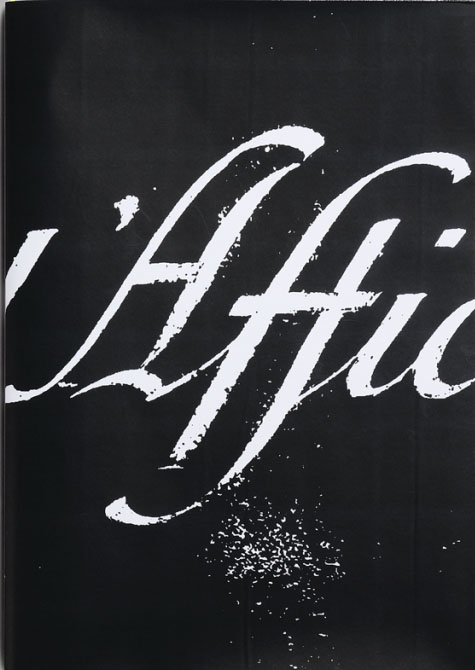
Défense d’Afficher
Défense d’Afficher est un recueil de graffitis politiques relevés en France tout au long de l’année l’année 2019, une période riche en contestations sociales. Une sélection restreinte, à fortiori non exhaustive, mais recouvrant un large panorama des luttes contemporaines qui nous concernent : contre le capitalisme, contre le racisme, contre le pillage du tiers-monde et pour l'accueil des réfugiés, contre le sexisme et les violences faites aux femmes, contre la destruction de la planète, contre cette société néo-libérale, contre la police et ses violences, contre les inégalités sociales, pour l’auto-défense et l’auto-organisation.
Sans oublier d’y faire apparaitre des sujets plus légers ou drôles. Le corps de l’ouvrage qui recueille les graffitis est imprimé sur six affiches jaunes fluo 50 × 70 cm pliées encartées, soutenu par une couverture muette au motif abstrait de peinture à la bombe. L’ensemble est recouvert d’une jaquette imprimée sur des affiches dos bleu accueillant le titre Défense d’Afficher, lui aussi relevé dans l’espace public. Ce fanzine à été produit suite à l’invitation « Impressions libres » d’Étapes et Exaprint.
Ce fanzine étant vendu à prix libre, il n’est pas possible de l’acheter en ligne. N’hésitez pas à nous contacter pour les modalitées de vente.





